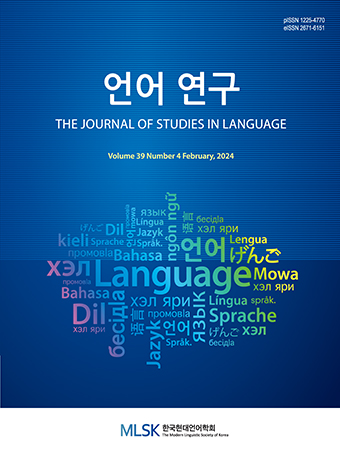Research Article
Abstract
References
Information
Synonyms are a problematic aspect of learning English as a foreign language. This corpus-based study aimed to explore the collations of four English synonymous adjectives: “able, capable, competent, qualified.” For collocation analysis, concordance lines of four adjectives were retrieved from the Corpus of Contemporary American English (COCA). It is quite a burdensome task for English learners to learn every synonym’s nuance. Using world-class corpus data could help English language learners learn synonyms by exploring and understanding synonyms’ collocation and syntactic patterns with accuracy in language use. The corpus-based data of the adjectives mentioned above were compared and investigated in order to see the similarities and differences. The results showed that the synonymous adjectives shared some core meanings and could be used interchangeably in some particular contexts. However, the collocation and syntactic patterns of the adjectives had various differences. The results of this study reveal that corpus can be used as an effective strategy to distinguish and understand the synonyms in EFL. The study recommends using corpus-based analysis in language teaching to clarify synonym use and enhance language learners’ vocabulary.
- Benson, M., Benson, E., and Ilson, R. 1997. The BBI Dictionary of English Word Combinations. Amsterdam: John Benjamins Publishing Co. 10.1075/z.bbi1(2nd)
- Biber, D., Conrad S., and Reppen R. 1998. Corpus linguistics: Investigating Language Structure and Use. Cambridge: Cambridge University Press. 10.1017/CBO9780511804489
- Collins, H. 2008. Collins Cobuild English Language Dictionary. London: Harcollins Pub.
- Crystal, D. 1992. The Cambridge Encyclopedia of Language. Cambridge: Cambridge University Press.
- Firth, J. R. 1957. Papers in Linguistics. Oxford: Oxford University Press.
- Halliday, M. and Hasan, R. 1976. Cohesion in English. London: Longman. PMC1333491
- Harley, H. 2006. English words: A Linguistic Introduction. Oxford: Blackwell.
- Lombard, R. J. 1997. Nonnative Speaker Collocation: A Corpus-driven Characterization from the Writing of Native Speakers of Mandarin. Unpublished Doctoral Dissertation, Arlington, Texas.
- Longman. 2016. Dictionary of English Language and Culture. London: Longman.
- Nation, I. S. P. 2001. Learning Vocabulary in Another Language. Cambridge: Cambridge University Press. 10.1017/CBO9781139524759 PMC90373
- Palmer, R. F. 1990. Semantics (2nd ed.). New York: Cambridge University Press.
- Partington, A. 1998. Patterns and Meanings: Using Corpora for English Language Research and Teaching. Amsterdam, Netherlands: John Benjamins. 10.1075/scl.2
- Sinclair, J. 1991. Corpus, Concordance and Collocation. Oxford : Oxford University Press.
- Wilkins, D. A. 1974. Reading in The Language Classroom. London: Macmillan Publishers Ltd.
- Yeh, Y., Liou, H., and Li, Y. 2007. Online Synonym Materials and Concordancing for EFL College Writing. Computer Assisted Language Learning 20.2, 131-152. 10.1080/09588220701331451
- Yoon, H. 2008. More than a Linguistic Reference: The Influence of Corpus Technology on L2 academic Writing. Language Learning and Technology 12.2, 31-48.
- Publisher :The Modern Linguistic Society of Korea
- Publisher(Ko) :한국현대언어학회
- Journal Title :The Journal of Studies in Language
- Journal Title(Ko) :언어연구
- Volume : 38
- No :3
- Pages :307-322
- DOI :https://doi.org/10.18627/jslg.38.3.202211.307




 The Journal of Studies in Language
The Journal of Studies in Language






